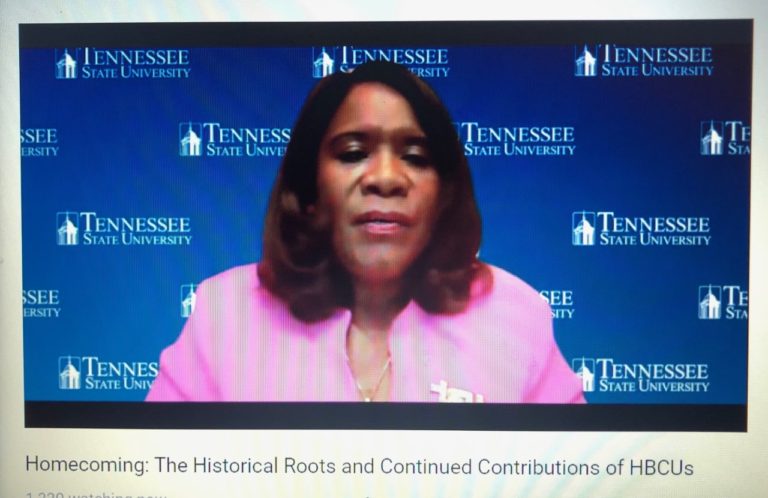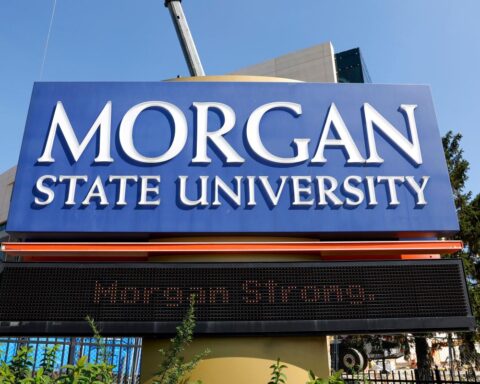By Tennessee State Newsroom
Tennessee State University President Glenda Glover testified on Oct. 6 at a virtual congressional hearing about the importance of historically black colleges and universities and urged lawmakers to continue supporting them.
The hearing before the House Committee on Education and Labor examined the essential contributions that HBCUs have made, the history that sets these institutions apart, and the enduring challenges and financial needs that they and their students face.
“HBCUs have stood the test of time and managed to succeed in spite of the difficulties,” said President Glover. “Now, we need your assistance – your financial assistance. We seek funding.”
She thanked lawmakers for legislation that provided financial support amid the COVID-19 pandemic, particularly to HBCUs, but she said more is needed.
“The emergency funding was significant because it assisted students as they faced this sudden crisis,” Glover said. “Today we ask you to continue that financial support of HBCUs, not just on the emergency basis as the CARES Act and other emergency funding has done in the past. We ask you to assist HBCUs as they seek to grow, develop, become more competitive and sustainable for years to come.”
She outlined three specific areas that HBCUs need funding: infrastructure and deferred maintenance; technology; new academic programs; and research.
Particularly in the case of infrastructure and maintenance, Glover said some HBCU presidents have deferred maintenance as much as $100 million or $200 million. At TSU, she said it’s around $300 million.
The hearing comes as TSU continues to work to get more than $500 million owed the institution because of years of unpaid land-grant matches by the state, dating back to the 1950s. A Tennessee joint legislative committee has said the university could receive between $150 million and $544 million.
“When matching funds were required, many times the states did not provide the proper match,” Glover said in prepared remarks. “This type of short changing with matching funds has continued for generations.”
Despite their continued challenges and limited resources, Glover and others who testified noted the success HBCUs have had. For example, they account for just 3% of colleges in the United States, but produce: 22% of bachelor’s degrees earned by African Americans; 25% of African Americans with STEM degrees; 50% of African American public school teachers; 60% of African American health professionals; 50% of African American lawyers; 50% of African American doctors; and 83% of African American judges. Additionally, 24% of Ph.Ds earned each year by African Americans are conferred by 24 of the more than 100 HBCUs.
Congresswoman Frederica S. Wilson, chair of the Education and Labor Committee’s Higher Education and Workforce Investment (HEWI) Subcommittee, led the hearing. She noted that several members of the Congressional Black Caucus are graduates of HBCUs, “including myself, a proud graduate of Fisk University, which was founded in 1866.”
“These historic institutions have nurtured and prepared generations of African Americans for success in a broad range of fields,” said Congresswoman Wilson.





